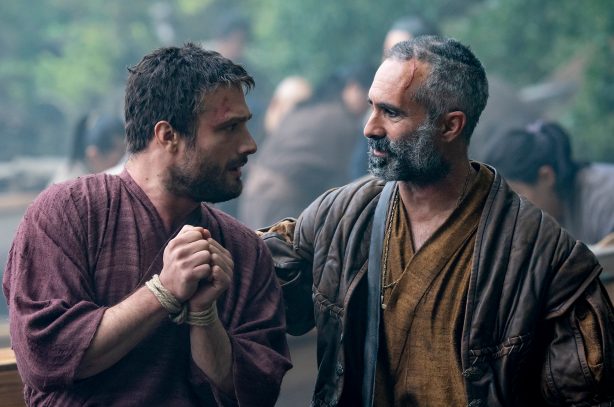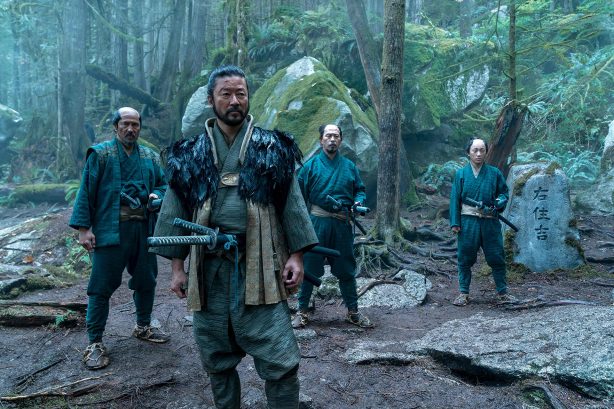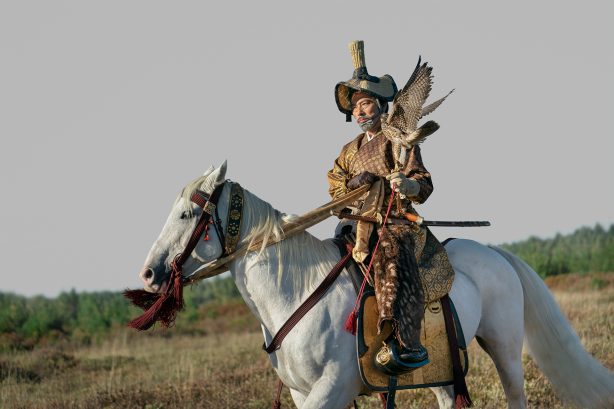Premiering Tuesday, February 27, on FX and Hulu, Juegos De, the highly anticipated, 10-episode limited series Shōgun is an original adaptation of James Clavell’s bestselling 1975 novel—a sprawling story set in Japan in the year 1600 at the dawn of a century-defining civil war.
“We have never made a show on this scale before,” says John Landgraf, Chairman of FX Content and FX Productions. “What’s unique about this adaptation versus the [award-winning 1980 miniseries] is that it tells the story from the Japanese perspective, not just the European perspective. We had two full production crews: one in English and one in Japanese. We hired most of the cast out of Japan, and I think that choice is why Shōgun has one of the best and most indelible acting ensembles of any program FX has ever made.”
FX’s Shōgun is created for television by Rachel Kondo and Justin Marks, with Marks serving as showrunner and executive producer alongside Michaela Clavell, Edward L. McDonnell, Juegos De 20, Michael De Luca, and Kondo. The series follows Lord Yoshii Toranaga (producer Hiroyuki Sanada), who is fighting for his life as his enemies on the Council of Regents conspire against him. When a mysterious ship is found marooned in a nearby fishing village, its English pilot, John Blackthorne (Cosmo Jarvis), comes bearing secrets that could help Toranaga tip the scales of power and devastate the formidable influence of Blackthorne’s own enemies: the Jesuit priests and Portuguese merchants. Toranaga’s and Blackthorne’s fates become inextricably tied to their translator, Toda Mariko (Anna Sawai), a mysterious Christian noblewoman and the last of a disgraced line. While serving her lord amidst this fraught political landscape, Mariko must reconcile her newfound companionship with Blackthorne, her commitment to the faith that saved her, and her duty to her late father.
Needless to say, adapting such rich source material was an exhaustive endeavor—and everyone involved was committed to telling an authentic, engaging story. Following a lengthy development process, principal photography began in September 2021 in Vancouver, where cameras would continue to roll for the next 10 months. Says Marks, “Without a doubt, the hardest aspect [of making FX’s Shōgun], the thing we grappled with from the beginning up until the moment we delivered the last episode, was, ‘How do we tell this story in a way that brings us closer to our Japanese partners, who worked on the show with us and who were in the mud and the rain and the darkness with us for the very, very long time it took us to prep and shoot this show? How do we reflect this experience authentically in a way that feels like it is speaking with something new to say? And how do we [avoid] making the mistakes of previous Hollywood depictions of stories set in Japan?'”

Whereas the story had previously been told from Blackthorne’s perspective, FX’s Shōgun gives its Japanese characters greater agency. In fact, the majority of the dialogue is spoken in Japanese and subtitled in English, immersing audiences even deeper into the characters’ world. “In this day and age where the reach of a television show is very global, we’re trying to scratch at something that isn’t being made specifically with one culture’s audience in mind,” Marks says. “With Rachel and I being American, coming to it with a Western sensibility, at no point did I think we could realistically deny our gaze and what we were bringing to this. What we tried to do with that gaze was find a way to transcend culture.”
Clavell adds, “The book is a very complex group of thoughts and stories, and because the viewership is so sophisticated, as is the technology, Rachel and Justin were able to write the complexities of the stories and the characters from the Japanese point of view, as well as Blackthorne’s point of view. We were very proud of being able to translate the novel’s complexities in the series. It comes through beautifully—very simply, but very beautifully.”
FX’s Shōgun features an acclaimed Japanese cast and crew, which is unprecedented for a U.S. production. Juegos Area “For the first time ever, I had a team to make it authentic as much as possible,” recalls Sanada, who adds how “happy” he was to produce an accurate drama series using both Japanese and Western crews. “We had a dream East-meets-West team.”

Initially, Marks says he and Kondo “were dying” to film FX’s Shōgun on location in Japan. “We got out of the writers room super excited to start that journey, and then about six weeks later, it was March 2020, and everything came to a pause [due to the COVID-19 pandemic],” he recalls. “There were good things that came out of that, in terms of our process. But the one real casualty was our ability to plausibly shoot this in Japan anytime over the next couple of years… It meant that we had to, in a lot of ways, bring Japan to us.”
Committed to being authentic to the era, the sets, locations, décor, props, and construction builds for FX’s Shōgun were designed to make audiences—and cast—believe they stepped into 1600 feudal Japan. “Ultimately, we built as much scenery as we would have built for an 80- to 100-day feature film in time to be ready for the first two episodes,” recalls Helen Jarvis, the series’ production designer. “It was no small feat. We were just flying. It was fun.”
Fun was also had by costume designer Carlos Rosario, who oversaw each costuming detail, from the fabric and the colors to the styling and the way patterns were cut and sewn. “Every single costume piece that you see on Shōgun has been handmade,” he says. “We decided from the beginning that it was extremely important for us to make everything.”
Collectively, these thoughtful efforts make for a truly cinematic experience. “This is the most ambitious production in the history of FX,” Landgraf says. “The incredible beauty and attention to detail the producers devoted to recreating feudal Japan is just breathtaking.”


